Personally tailored activities for improving psychosocial outcomes for people with dementia in long-term care
- PMID: 36930048
- PMCID: PMC10010156
- DOI: 10.1002/14651858.CD009812.pub3
Personally tailored activities for improving psychosocial outcomes for people with dementia in long-term care
Abstract
Background: People with dementia who are being cared for in long-term care settings are often not engaged in meaningful activities. We wanted to know whether offering them activities which are tailored to their individual interests and preferences could improve their quality of life and reduce agitation. This review updates our earlier review published in 2018.
Objectives: ∙ To assess the effects of personally tailored activities on psychosocial outcomes for people with dementia living in long-term care facilities. ∙ To describe the components of the interventions. ∙ To describe conditions which enhance the effectiveness of personally tailored activities in this setting.
Search methods: We searched the Cochrane Dementia and Cognitive Improvement Group's Specialized Register, on 15 June 2022. We also performed additional searches in MEDLINE, Embase, PsycINFO, CINAHL, Web of Science, ClinicalTrials.gov, and the World Health Organization (WHO) ICTRP, to ensure that the search for the review was as up-to-date and as comprehensive as possible.
Selection criteria: We included randomised controlled trials (RCTs) and controlled clinical trials offering personally tailored activities. All interventions included an assessment of the participants' present or past preferences for, or interest in, particular activities as a basis for an individual activity plan. Control groups received either usual care or an active control intervention.
Data collection and analysis: Two authors independently selected studies for inclusion, extracted data and assessed the risk of bias of included studies. Our primary efficacy outcomes were agitation and participant quality of life. Where possible, we pooled data across studies using a random effects model.
Main results: We identified three new studies, and therefore included 11 studies with 1071 participants in this review update. The mean age of participants was 78 to 88 years and most had moderate or severe dementia. Ten studies were RCTs (three studies randomised clusters to the study groups, six studies randomised individual participants, and one study randomised matched pairs of participants) and one study was a non-randomised clinical trial. Five studies included a control group receiving usual care, five studies an active control group (activities which were not personally tailored) and one study included both types of control group. The duration of follow-up ranged from 10 days to nine months. In nine studies personally tailored activities were delivered directly to the participants. In one study nursing staff, and in another study family members, were trained to deliver the activities. The selection of activities was based on different theoretical models, but the activities delivered did not vary substantially. We judged the risk of selection bias to be high in five studies, the risk of performance bias to be high in five studies and the risk of detection bias to be high in four studies. We found low-certainty evidence that personally tailored activities may slightly reduce agitation (standardised mean difference -0.26, 95% CI -0.53 to 0.01; I² = 50%; 7 studies, 485 participants). We also found low-certainty evidence from one study that was not included in the meta-analysis, indicating that personally tailored activities may make little or no difference to general restlessness, aggression, uncooperative behaviour, very negative and negative verbal behaviour (180 participants). Two studies investigated quality of life by proxy-rating. We found low-certainty evidence that personally tailored activities may result in little to no difference in quality of life in comparison with usual care or an active control group (MD -0.83, 95% CI -3.97 to 2.30; I² = 51%; 2 studies, 177 participants). Self-rated quality of life was only available for a small number of participants from one study, and there was little or no difference between personally tailored activities and usual care on this outcome (MD 0.26, 95% CI -3.04 to 3.56; 42 participants; low-certainty evidence). Two studies assessed adverse effects, but no adverse effects were observed. We are very uncertain about the effects of personally tailored activities on mood and positive affect. For negative affect we found moderate-certainty evidence that there is probably little to no effect of personally tailored activities compared to usual care or activities which are not personalised (standardised mean difference -0.02, 95% CI -0.19 to 0.14; 6 studies, 632 participants). We were not able to undertake meta-analyses for engagement and sleep-related outcomes, and we are very uncertain whether personally tailored activities have any effect on these outcomes. Two studies that investigated the duration of the effects of personally tailored activities indicated that the intervention effects they found persisted only during the period of delivery of the activities.
Authors' conclusions: Offering personally tailored activities to people with dementia in long-term care may slightly reduce agitation. Personally tailored activities may result in little to no difference in quality of life rated by proxies, but we acknowledge concerns about the validity of proxy ratings of quality of life in severe dementia. Personally tailored activities probably have little or no effect on negative affect, and we are uncertain whether they have any effect on positive affect or mood. There was no evidence that interventions were more likely to be effective if based on one theoretical model rather than another. We included three new studies in this updated review, but two studies were pilot trials and included only a small number of participants. Certainty of evidence was predominately very low or low due to several methodological limitations of and inconsistencies between the included studies. Evidence is still limited, and we remain unable to describe optimal activity programmes. Further research should focus on methods for selecting appropriate and meaningful activities for people in different stages of dementia.
Copyright © 2023 The Cochrane Collaboration. Published by John Wiley & Sons, Ltd.
Conflict of interest statement
RM: none known.
SC: none known.
AR: none known.
HR: none known.
GM: none known.
Figures
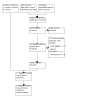

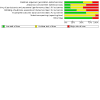


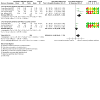
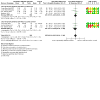
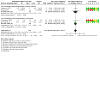
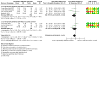
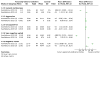
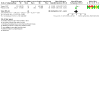
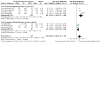
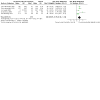
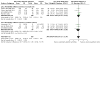
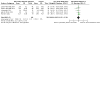
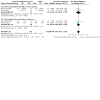
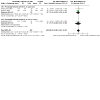






Update of
-
Personally tailored activities for improving psychosocial outcomes for people with dementia in long-term care.Cochrane Database Syst Rev. 2018 Feb 13;2(2):CD009812. doi: 10.1002/14651858.CD009812.pub2. Cochrane Database Syst Rev. 2018. Update in: Cochrane Database Syst Rev. 2023 Mar 13;3:CD009812. doi: 10.1002/14651858.CD009812.pub3. PMID: 29438597 Free PMC article. Updated.
References
References to studies included in this review
Cohen‐Mansfield 2007 {published data only}
-
- Cohen-Mansfield J, Libin A, Marx MS. Nonpharmacological treatment of agitation: a controlled trial of systematic individualized intervention. Journals of Gerontology. Series A, Biological Sciences and Medical Sciences 2007;62(8):908-16. - PubMed
Cohen‐Mansfield 2012 {published data only}
-
- Cohen-Mansfield J, Thein K, Marx MS, Dakheel-Ali M, Freedman L. Efficacy of nonpharmacologic interventions for agitation in advanced dementia: a randomized, placebo-controlled trial. Journal of Clinical Psychiatry 2012;73(9):1255-61. - PubMed
-
- NCT00820859. Treatment Routes for Exploring Agitation (TREA). www.clinicaltrials.gov/ct2/show/NCT00820859 (first received 12 January 2009).
Kolanowski 2011 {published and unpublished data}
-
- NCT00388544. Enhancing Quality of Life for Nursing Home Residents. www.clinicaltrials.gov/ct2/show/NCT00388544 (first received 17 October 2006).
Mbakile‐Mahlanza 2020 {published data only}
-
- ACTRN12611000998943. A cluster-randomised controlled trial of family-mediated personalised activities for nursing home residents with dementia. www.anzctr.org.au/Trial/Registration/TrialReview.aspx?ACTRN=12611000998943 (first received 19 September 2011).
-
- Mbakile-Mahlanza L, Van der Ploeg ES, Busija L, Camp C, Walker H, O'Connor DW. A cluster-randomized crossover trial of Montessori activities delivered by family carers to nursing home residents with behavioral and psychological symptoms of dementia. International Psychogeriatrics 2020;32(3):347-58. - PubMed
Orsulic‐Jeras 2000 {published data only}
-
- Orsulic-Jeras S, Schneider NM, Camp CJ. Montessori-based activities for long-term care residents with dementia. Topics in Geriatric Rehabilitation 2000;16(1):78-91. - PubMed
Richards 2005 {published data only}
-
- Richards KC, Beck C, O'Sullivan PS, Shue VM. Effect of individualized social activity on sleep in nursing rome residents with dementia. Journal of the American Geriatrics Society 2005;53(9):1510-7. - PubMed
Travers 2017 {published data only}
-
- ACTRN12613000296730. Having more fun: Increasing enjoyable activities to improve mood in nursing home residents with Alzheimer’s disease: A pilot study. www.anzctr.org.au/Trial/Registration/TrialReview.aspx?ACTRN=12613000296730 (first received 11 March 2013).
-
- Travers C. Increasing enjoyable activities to treat depression in nursing home residents with dementia: a pilot study. Dementia 2017;16(2):204-18. - PubMed
van der Ploeg 2013 {published and unpublished data}
-
- ACTRN12609000564257. Personalised, one-to-one interaction using Montessori-type activities as a treatment of challenging behaviours in people with dementia: a pilot controlled trial. www.anzctr.org.au/Trial/Registration/TrialReview.aspx?ACTRN=12609000564257 (first received 9 July 2009).
-
- Ploeg ES, Eppingstall B, Camp CJ, Runci SJ, Taffe J, O'Connor DW. A randomized crossover trial to study the effect of personalized, one-to-one interaction using Montessori-based activities on agitation, affect, and engagement in nursing home residents with Dementia. International Psychogeriatrics 2013;25(4):565-75. - PubMed
Van Haitsma 2015 {published data only}
-
- Van Haitsma KS, Curyto K, Abbott KM, Towsley GL, Spector A, Kleban M. A randomized controlled trial for an individualized positive psychosocial intervention for the affective and behavioral symptoms of dementia in nursing home residents. Journals of Gerontology. Series B, Psychological Sciences and Social Sciences 2015;70(1):35-45. - PubMed
Wenborn 2013 {published data only}
-
- ISRCTN67952488. Does occupational therapy intervention improve the quality of life for older people with dementia in a care home setting? www.isrctn.com/ISRCTN67952488?q=ISRCTN67952488 (first received 6 October 2006).
-
- Wenborn J, Challis D, Head J, Miranda-Castillo C, Popham C, Thakur R, et al. Providing activity for people with dementia in care homes: A cluster randomised controlled trial. International Journal of Geriatric Psychiatry 2013;28(12):1296-304. - PubMed
Yuen 2019 {published data only}
-
- Yuen I, Kwok T. Effectiveness of DementiAbility methods: the Montessori way on agitation in long-term care home residents with dementia in Hong Kong. International Journal of Geriatric Psychiatry 2019;34(9):1352-8. - PubMed
References to studies excluded from this review
ACTRN12618001505291 {published data only}
-
- iPads for people with dementia in residential care: a feasibility pilot randomized controlled trial. www.anzctr.org.au/ACTRN12618001505291.aspx.
Beck 2002 {published data only}
-
- Beck CK, Vogelpohl TS, Rasin JH, Uriri JT, O'Sullivan P, Walls R, et al. Effects of behavioral interventions on disruptive behavior and affect in demented nursing home residents. Nursing Research 2002;51(4):219-28. - PubMed
Chan 2021 {published data only}
Chaudhry 2020 {published data only}
Cohen‐Mansfield 2006 {published data only}
-
- Cohen-Mansfield J, Parpura-Gill A, Golander H. Utilization of self-identity roles for designing interventions for persons with dementia. Journals of Gerontology. Series B, Psychological Sciences and Social Sciences 2006;61(4):P202-12. - PubMed
Davison 2016 {published data only}
-
- Davison TE, Nayer K, Coxon S, Bono A, Eppingstall B, Jeon Y-H, et al. A personalized multimedia device to treat agitated behavior and improve mood in people with dementia: a pilot study. Geriatric Nursing 2016;37(1):25-39. - PubMed
Diehl 2020 {published data only}
DiNapoli 2016 {published data only}
-
- DiNapoli EA, Scogin F, Bryant AN, Sebastian S, Mundy MJ. Effect of individualized social activities on quality of life among older adults with mild to moderate cognitive impairment in a geriatric psychiatry facility. Aging & Mental Health 2016;20(3):262-70. - PubMed
Eloniemi‐Sulkava 2019 {published data only}
-
- Eloniemi-Sulkava U, Pesonen T, Savikko N, Koskinen J, Sulkava R, Woods B. Changing Minds in care of people with dementia in Finland. Randomised controlled trial [2019]. International Psychogeriatrics 2019;31(Supplement 1):52.
Farina 2006 {published data only}
-
- Farina E, Mantovani F, Fioravanti R, Pignatti R, Chiavari L, Imbornone E, et al. Evaluating two group programmes of cognitive training in mild-to-moderate AD: is there any difference between a 'global' stimulation and a 'cognitive-specific' one? Aging and Mental Health 2006;10(3):211-8. - PubMed
Farina 2009 {published data only}
-
- Farina E, Villanelli F. Conducting an Intervention Program Mediated by Recreational Activities and Socialization in Groups for Clients with Alzheimer's Disease. In: Söderback I, editors(s). International Handbook of Occupational Therapy Interventions. Springer, 2009:423-9.
Gaspar 2020 {published data only}
-
- Gaspar PM, Westberg K. Evaluation of the Montessori-Inspired Lifestyle R as the Foundation of Care in Assisted Living Memory Care. Journal of Gerontological Nursing 2020;46(5):40-6. - PubMed
Gerber 1991 {published data only}
-
- Gerber GJ, Prince PN, Snider HG, Atchison K, Dubois L, Kilgour JA. Group activity and cognitive improvement among patients with Alzheimer's disease. Hospital and Community Psychiatry 1991;42(8):843-5. - PubMed
Hong 2011 {published data only}
-
- Hong GR. [Effects of multisensory stimulation using familiarity: persons with dementia in long-term care facility in Korea]. Journal of Korean Academy of Nursing 2011;41(4):528-38. - PubMed
Hopman‐Rock 1999 {published data only}
-
- Hopman-Rock M, Staats PG, Tak EC, Dröes RM. The effects of a psychomotor activation programme for use in groups of cognitively impaired people in homes for the elderly. International Journal of Geriatric Psychiatry 1999;14(8):633-42. - PubMed
Hsu 2015 {published data only}
Kolanowski 2005 {published and unpublished data}
-
- Kolanowski AM, Litaker M, Buettner L. Efficacy of theory-based activities for behavioral symptoms of dementia. Nursing Research 2005;54(4):219-28. - PubMed
Koskela 2017 {published data only}
-
- Koskela SA, Jones F, Clarke N, Anderson L, Kennedy B, Grant R, et al. Active Residents in Care Homes (ARCH): study protocol to investigate the implementation and outcomes of a whole-systems activity programme in residential care homes for older people. Physiotherapy 2017;103(1):113-20. - PubMed
-
- Smith R, Wood J, Jones F, Anderson L, Hurley M. Active residents in care homes: A holistic approach to promoting and encouraging meaningful activity for residents living in care homes: Innovative Practice. Dementia (London) 2019;18(5):1942-47. - PubMed
Kovach 2004 {published data only}
-
- Kovach CR, Taneli Y, Dohearty P, Schlidt AM, Cashin S, Silva-Smith AL. Effect of the BACE intervention on agitation of people with dementia. Gerontologist 2004;44(6):797-806. - PubMed
Lin 2009 {published data only}
-
- Lin LC, Yang MH, Kao CC, Wu SC, Tang SH, Lin JG. Using acupressure and Montessori-based activities to decrease agitation for residents with dementia: a cross-over trial. Journal of the American Geriatrics Society 2009;57(6):1022-9. - PubMed
Livingston 2019 {published data only}
-
- Livingston G, Barber J, Marston L, Stringer A, Panca M, Hunter R, et al. Clinical and cost-effectiveness of the Managing Agitation and Raising Quality of Life (MARQUE) intervention for agitation in people with dementia in care homes: a single-blind, cluster-randomised controlled trial. Lancet Psychiatry 2019;6(4):293-304. - PubMed
Luttenberger 2012 {published data only}
-
- Luttenberger K, Donath C, Uter W, Graessel E. Effects of multimodal nondrug therapy on dementia symptoms and need for care in nursing home residents with degenerative dementia: a randomized-controlled study with 6-month follow-up. Journal of the American Geriatrics Society 2012;60(5):830-40. - PubMed
Mansbach 2017 {published data only}
-
- Mansbach WE, Mace RA, Clark KM, Firth IM. Meaningful activity for long-term care residents with dementia: a comparison of activities and raters. Gerontologist 2017;57(1):461-8. - PubMed
Meeks 2008 {published data only}
-
- Meeks S, Looney SW, Van Haitsma K, Teri L. BE-ACTIV: A staff-assisted behavioral intervention for depression in nursing homes. Gerontologist 2008;48(1):105-14. - PubMed
Morley 2014 {published data only}
-
- Morley JE, Philpot CD, Gill D, Berg-Weger M. Meaningful activities in the nursing home. Journal of the American Medical Directors Association 2014;15(2):79-81. - PubMed
Mowrey 2013 {published data only}
NCT04515875 {published data only}
-
- PREMA Intervention for Adults With Mild Cognitive Impairment and Their Caregivers (PREMA). www.clinicaltrials.gov/ct2/show/NCT04515875.
O'Sullivan 2021 {published data only}
-
- O'Sullivan JL, Lech S, Gellert P, Grittner U, Voigt-Antons JN, Möller S, et al. A tablet-based intervention for activating nursing home residents with dementia: results from a cluster-randomized controlled trial. International Psychogeriatrics 2022;34(2):129-41. - PubMed
O'Sullivan 2022 {published data only}
-
- O'Sullivan JL, Lech S, Gellert P, Grittner U, Voigt-Antons JN, Möller S, et al. A tablet-based intervention for activating nursing home residents with dementia: results from a cluster-randomized controlled trial. 2022 International Psychogeriatrics;34(2):129-41. - PubMed
Patel 2016 {published data only}
-
- Patel P, Porter T, Smith J, Mirk A. Montessori based activities in veterans with severe dementia: engagement, affect, and behavior. Journal of the American Geriatrics Society 2016;64(Supplement S1):S66-7.
Pieper 2016 {published data only}
-
- Pieper MJ, Francke AL, Steen JT, Scherder EJ, Twisk JW, Kovach CR, Achterberg WP. Effects of a stepwise multidisciplinary intervention for challenging behavior in advanced dementia: a cluster randomized controlled trial. Journal of the American Geriatrics Society 2016;64(2):261-9. - PubMed
Politis 2004 {published data only}
-
- Politis AM, Vozzella S, Mayer LS, Onyike CU, Baker AS, Lyketsos CG. A randomized, controlled, clinical trial of activity therapy for apathy in patients with dementia residing in long-term care. International Journal of Geriatric Psychiatry 2004;19(11):1087-94. - PubMed
Rapp 2013 {published data only}
-
- Rapp MA, Mell T, Majic T, Treusch Y, Nordheim J, Niemann-Mirmehdi M, et al. Agitation in nursing home residents with dementia (VIDEANT Trial): effects of a cluster-randomized, controlled, guideline implementation trial. Journal of the American Medical Directors Association 2013;14(9):690-5. - PubMed
Sackley 2009 {published data only}
Sánchez 2016 {published data only}
-
- Sánchez A, Marante-Moar MP, Sarabia C, Labra C, Lorenzo T, Maseda A, et al. Multisensory stimulation as an intervention strategy for elderly patients with severe dementia: a pilot randomized controlled trial. American Journal of Alzheimer's Disease and Other Dementias 2016;31(4):341-50. - PMC - PubMed
Schneider 2003 {published data only}
-
- Schneider NM, Camp CJ. Use of Montessori-based activities by visitors of nursing home residents with dementia. Clinical Gerontologist 2003;26(1-2):71-84.
Smith 2019 {published data only}
-
- Smith R, Wood J, Jones F, Anderson L, Hurley M. Active residents in care homes: a holistic approach to promoting and encouraging meaningful activity for residents living in care homes: innovative Practice. Dementia 2019;18(5):1942-47. - PubMed
Sung 2010 {published data only}
-
- Sung HC, Chang AM, Lee WL. A preferred music listening intervention to reduce anxiety in older adults with dementia in nursing homes. Journal of Clinical Nursing 2010;19(7-8):1056-64. - PubMed
Treusch 2015 {published data only}
-
- Treusch Y, Majic T, Page J, Gutzmann H, Heinz A, Rapp MA. Apathy in nursing home residents with dementia: results from a cluster-randomized controlled trial. European Psychiatry 2015;30(2):251-7. - PubMed
Vink 2014 {published data only}
-
- Vink AC, Zuidersma M, Boersma F, Jonge P, Zuidema SU, Slaets JP. Effect of music therapy versus recreational activities on neuropsychiatric symptoms in elderly adults with dementia: an exploratory randomized controlled trial. Journal of the American Geriatrics Society 2014;62(2):392-3. - PubMed
Wilkinson 2018 {published data only}
-
- Wilkinson A, Chignell M, Kanik M, O'Neill J. Designing for dementia: the impact of interactive ambient technology on well-being in long-term care homes. Alzheimer's & Dementia 2018;14(7 Supplement):P636.
Wilks 2019 {published data only}
-
- Wilks SE, Boyd PA, Bates SM, Cain DS, Geiger JR. Montessori-based activities among persons with late-stage dementia: evaluation of mental and behavioral health outcomes. Dementia (London) 2019;18(4):1373-92. - PubMed
Additional references
Adlbrecht 2022
-
- Adlbrecht L, Nemeth T, Frommlet F, Bartholomeyczik S, Mayer H. Engagement in purposeful activities and social interactions amongst persons with dementia in special care units compared to traditional nursing homes: An observational study. Scandinavian Journal of Caring Science 2022;36(3):650-62. - PMC - PubMed
Alexopoulos 1988
-
- Alexopoulos GS, Abrams RC, Young RC, Shamoian CA. Cornell Scale for depression in dementia. Biological Psychiatry 1988;23(3):271-84. - PubMed
Algase 1996
-
- Algase DL, Beck C, Kolanowski A, Whall A, Berent SK, Richards K, et al. Need-driven dementia-compromised behavior: an alternative view of disruptive behavior. American Journal of Alzheimer's Disease and Other Dementias 1996;11(6):10–9.
American Psychiatric Association 1994
-
- American Psychiatric Association. Diagnosis and statistical manual of mental disorders (4th edition). Washington (DC): American Psychiatric Association, 1994.
Arons 2013
Buettner 2003
Burks 2021
-
- Burks HB, des Bordes JK, Chadha R, Holmes HM, Rianon NJ. Quality of life assessment in older adults with dementia: a systematic review. Dementia and Geriatric Cognitive Disorders 2021;50(2):103-10. - PubMed
Campbell 2012
-
- Campbell MK, Piaggio G, Elbourne DR, Altman DG, CONSORT Group. Consort 2010 statement: extension to cluster randomised trials. BMJ 2012;345:e5661. - PubMed
Cohen‐Mansfield 1989a
-
- Cohen-Mansfield J, Werner P, Marx MS. An observational study of agitation in agitated nursing home residents. International Psychogeriatrics 1989;1(2):153-65. - PubMed
Cohen‐Mansfield 1989b
-
- Cohen-Mansfield J, Marx M, Rosenthal S. A description of agitation in a nursing home. Journal of Gerontology 1989;44(3):M77–M84. - PubMed
Cohen‐Mansfield 2000
-
- Cohen-Mansfield J. Theoretical frameworks for behavioral problems in dementia. Alzheimer's Care Today 2000;1(4):8-21.
Cohen‐Mansfield 2004
-
- Cohen-Mansfield J, Libin A. Assessment of agitation in elderly patients with dementia: correlations between informant rating and direct observation. International Journal of Geriatric Psychiatry 2004;19(9):881-91. - PubMed
Cohen‐Mansfield 2010
Cohen‐Mansfield 2011
Colling 2000
-
- Colling KB. A taxonomy of passive behaviors in people with Alzheimer's disease. Journal of Nursing Scholarship 2000;32(3):239-44. - PubMed
Cooney 2009
-
- Cooney A, Murphy K, O'Shea E. Resident perspectives of the determinants of quality of life in residential care in Ireland. Journal of Advanced Nursing 2009;65(5):1029-38. - PubMed
Costa 1992
-
- Costa P, McCrae R. Revised NEO personality inventory and NEO five-factor inventory: professional manual. Odessa: Psychological Assessment Resources, 1992.
Craig 2008
Deci 2000
-
- Deci EL, Ryan RM. The "what" and "why" of goal pursuits: Human needs and the self-determination of behavior. Psychological Inquiry 2000;11(4):227-68.
Dobbs 2005
-
- Dobbs D, Munn J, Zimmerman S, Boustani M, Williams CS, Sloane PD, et al. Characteristics associated with lower activity involvement in long-term care residents with dementia. Gerontologist 2005;1(Suppl 1):81-6. - PubMed
Edvardsson 2014
-
- Edvardsson D, Petersson L, Sjogren K, Lindkvist M, Sandman P-O. Everyday activities for people with dementia in residential aged care: associations with person-centredness and quality of life. International Journal of Older People Nursing 2014;9(4):269-76. - PubMed
Eldridge 2016
Fazio 2018
-
- Fazio S, Pace D, Maslow K, Zimmerman S, Kallmyer B. Alzheimer's Association dementia care practice recommendations. Gerontologist 2018;58(suppl 1):S1-S9. - PubMed
Fredrickson 2001
GBD 2019 Dementia Forecasting Collaborators 2022
Gomez‐Gallego 2015
-
- Gomez-Gallego M, Gomez-Garcia J, Ato-Lozano E. Addressing the bias problem in the assessment of the quality of life of patients with dementia: determinants of the accuracy and precision of the proxy ratings. Journal of Nutrition, Health & Aging 2015;19(3):365-72. - PubMed
Grant 2013
Guétin 2009
-
- Guétin S, Portet F, Picot MC, Pommié C, Messaoudi M, Djabelkir L, et al. Effect of music therapy on anxiety and depression in patients with Alzheimer's type dementia: randomised, controlled study. Dementia and Geriatric Cognitive Disorders 2009;28(1):36-46. - PubMed
Guise 2017
-
- Guise JM, Chang C, Butler M, Viswanathan M, Tugwell P. AHRQ series on complex intervention systematic reviews-paper 1: an introduction to a series of articles that provide guidance and tools for reviews of complex interventions. Journal of Clinical Epidemiology 2017;90:6-10. - PubMed
Guyatt 2011
-
- Guyatt G, Oxman AD, Akl EA, Kunz R, Vist G, Brozek J, et al. GRADE guidelines: 1. Introduction-GRADE evidence profiles and summary of findings tables. Journal of Clinical Epidemiology 2011;64(4):383-94. - PubMed
Han 2016
Harmer 2008
-
- Harmer BJ, Orrell M. What is meaningful activity for people with dementia living in care homes? A comparison of the views of older people with dementia, staff and family carers. Aging & Mental Health 2008;12(5):548-58. - PubMed
Helvik 2015
-
- Helvik AS, Engedal K, Benth JŠ, Selbæk G. Prevalence and severity of dementia in nursing home residents. Dementia and Geriatric Cognitive Disorders 2015;40(3-4):166-77. - PubMed
Higgins 2017
-
- Higgins JP, Churchill R, Chandler J, Cumpston MS, editor(s). Cochrane Handbook for Systematic Reviews of Interventions version 5.2.0 (updated June 2017). The Cochrane Collaboration, 2017. Available from www.training.cochrane.org/handbook.
Higgins 2021
-
- Higgins JP, Thomas J, Chandler J, Cumpston M, Li T, Page MJ, Welch VA, editor(s). Cochrane Handbook for Systematic Reviews of Interventions Version 6.2 (updated February 2021). Cochrane, 2021. Available from training.cochrane.org/handbook. - PMC - PubMed
Hill 2010
-
- Hill NL, Kolanowski A, Kürüm E. Agreeableness and activity engagement in nursing home residents with dementia. Journal of Gerontological Nursing 2010;36(9):45-52. - PubMed
Hoffmann 2014
-
- Hoffmann TC, Glasziou PP, Boutron I, Milne R, Perera R, Moher D, et al. Better reporting of interventions: template for intervention description and replication (TIDieR) checklist and guide. BMJ 2014;348:g1687. - PubMed
Judge 2000
-
- Judge KS, Camp CJ, Orsulic-Jeras S. Use of montessori-based activities for clients with dementia in adult daycare: effects on engagement. American Journal of Alzheimer's Disease and Other Dementias 2000;15(1):42-6.
Kovach 1998
-
- Kovach CR, Magliocco JS. Late-stage dementia and participation in therapeutic activities. Applied Nursing Research 1998;11(4):167-73. - PubMed
Kristensen 2020
-
- Kristensen H, Peoples H. Experiences related to quality of life in people with dementia living in institutional settings–a meta-aggregation. British Journal of Occupational Therapy 2020;83(3):145-61.
Lawton 1996
-
- Lawton MP, Van Haitsma K, Klapper J. Observed affect in nursing home residents with Alzheimer's disease. Journals of Gerontology. Series B, Psychological Sciences and Social Sciences 1996;51(1):P3-14. - PubMed
Logsdon 1999
-
- Logsdon RG, Gibbons LE, McCurry SM, Teri L. Quality of life in Alzheimer’s disease: patient and caregiver reports. Journal of Mental Health and Aging 1999;5(1):21-32.
Michelet 2022
-
- Michelet M, Selbaek G, Strand BH, Lund A, Engedal K, Bieber A et al. Associations between unmet needs for daytime activities and company and scores on the Neuropsychiatric Inventory-Questionnaire in people with dementia: a longitudinal study. Aging & Mental Health 2022;26(4):725-34. - PubMed
Mills 1997
-
- Mills MA. Narrative identity and dementia: a study of emotion and narrative in older people with dementia. Ageing and Society 1997;17(6):673-98.
Möhler 2015
Moniz‐Cook 2001
-
- Moniz-Cook E, Woods R, Gardiner E, Silver M, Agar S. The Challenging Behaviour Scale (CBS): development of a scale for staff caring for older people in residential and nursing homes. British Journal of Clinical Psychology 2001;40(Pt 3):309-22. - PubMed
Moore 2015
Moyle 2012
-
- Moyle W, Murfield JE, Griffiths SG, Venturato L. Assessing quality of life of older people with dementia: a comparison of quantitative self-report and proxy accounts. Journal of Advanced Nursing 2012;68(10):2237-46. - PubMed
Murphy 2007
-
- Murphy K, Shea EO, Cooney A. Quality of life for older people living in long-stay settings in Ireland. Journal of Clinical Nursing 2007;16(11):2167-77. - PubMed
NICE 2018
-
- National Institute for Health and Care Excellence. Dementia: assessment, management and support for people living with dementia and their carers. NICE Clinical Guidelines; 2018. Available at www.nice.org.uk/guidance/ng97. - PubMed
Phinney 2007
-
- Phinney A, Chaudhury H, O'Connor DL. Doing as much as I can do: the meaning of activity for people with dementia. Aging & Mental Health 2007;11(4):384-93. - PubMed
Richards 2001
-
- Richards KC, Sullivan SC, Phillips RL, Beck CK, Overton-McCoy AL. The effect of individualized activities on the sleep of nursing home residents who are cognitively impaired: a pilot study. Journal of Gerontological Nursing 2001;27(9):30-7. - PubMed
Shankar 1999
-
- Shankar KK, Walker M, Frost D, Orrell M. The development of a valid and reliable scale for rating anxiety in dementia (RAID). Aging & Mental Health 1999;3(1):39-49.
Skivington 2021
Skrajner 2007
Smith 2018
-
- Smith N, Towers A, Palmer S, Beecham J, Welch E. Being occupied: supporting ‘meaningful activity’in care homes for older people in England. Ageing & Society 2018;38(11):2218-40.
Stewart 2014
-
- Stewart R, Hotopf M, Dewey M, Ballard C, Bisla J, Calem M, et al. Current prevalence of dementia, depression and behavioural problems in the older adult care home sector: the South East London Care Home Survey. Age and Ageing 2014;43(4):562-7. - PubMed
Strick 2021
-
- Strick K, Abbott R, Thompson Coon J, Garside R. Meta-ethnography of the purpose of meaningful occupation for people living with dementia. International Journal of Older People Nursing 2021;16(5):e12391. - PubMed
Tappen 1995
-
- Tappen RM, Barry C. Assessment of affect in advanced Alzheimer's disease: the Dementia Mood Picture Test. Journal of Gerontological Nursing 1995;21(3):44-6. - PubMed
Testad 2014
-
- Testad I, Corbett A, Aarsland D, Lexow KO, Fossey J, Woods B, et al. The value of personalized psychosocial interventions to address behavioral and psychological symptoms in people with dementia living in care home settings: a systematic review. International Psychogeriatrics 2014;26(7):1083-98. - PubMed
Travers 2016
-
- Travers C, Brooks D, Hines S, O'Reilly M, McMaster M, He W, et al. Effectiveness of meaningful occupation interventions for people living with dementia in residential aged care: a systematic review. JBI Database of Systematic Reviews and Implementation Reports 2016;14(12):163-225. - PubMed
van der Linde 2014
Van Haitsma 2000
-
- Van Haitsma K. The assessment and integration of preferences into care practices for persons with dementia residing in the nursing home. In: Rubinstein R, Moss M, Kleban M, editors(s). The many dimensions of aging. New York: Springer, 2000.
Vernooij‐Dassen 2007
-
- Vernooij-Dassen M. Meaningful activities for people with dementia. Aging & Mental Health 2007;11(4):359-60. - PubMed
Viswanathan 2017
Wenborn 2008
-
- Wenborn J, Challis D, Pool J, Burgess J, Elliott N, Orrell M. Assessing the validity and reliability of the Pool Activity Level (PAL) Checklist for use with older people with dementia. Aging & Mental Health 2008;12(2):202-11. - PubMed
References to other published versions of this review
Möhler 2012
Publication types
MeSH terms
LinkOut - more resources
Full Text Sources
Medical
Miscellaneous

